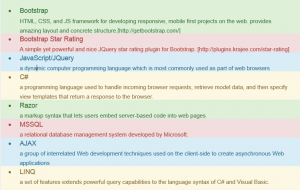Below is a summary of our privacy policy. We will adhere to the mischance principle and the voluntary principle for our site as outlined by Robert L. McArthur (2001). miXXerS cannot feasibly be reasonable for the privacy of information that can easily be discovered. Users that want to anonymise or encrypt their communication would not be able to use miXXers and it is inevitable that records will be left in caches, cookies and servers as with all websites. In addition to gain users trust we will be transparent on how information is being used in line with Weitzner et al (2008). We will also adhere to the EU’s Data Protection Directive, which is also internationally regarded as one of the most stringent data privacy laws globally. By adhering to this standard we will not only be able to expand successfully in Europe but also internationally and in a way which respects the privacy of our users. In addition given the difficult users face in reading privacy policies (McDonald, A. and Cranor, L. 2008) we will attempt to make our policies as user friendly as possible and let users know whenever we have made a change to our policy. However given the service is free to users there will inevitably be a privacy trade off and this will entail some level of risk management on the part of our users (Dunfee T et al. 1999).
miXXerS’ Web Application is about the sharing of anything that is related to music/events. A registration/login system is implemented so that only registered users are able to post/edit/delete/rate/comment on recipes. Moreover, music can be organised by categories, users can view any music update that under a specific category.
Users will be engaging in Policy based trust by signing up to our network and we will be utilising the concept of provenance based trust for the site (Moreau 2009). However reputation based trust is extremely important and so we must ensure we adhere to the policies that our users have signed onto to ensure that we do no risk our reputation, increase trust which would in turn support user growth.
Cookies: Our website uses “cookie” technology. A cookie is a small data file that is placed on the hard drive of your device such as laptop or mobile browsers when you a website. A “session cookie” expires immediately when you end your session (i.e., close your browser). The cookie allows us to recognize you or/and your device when you return to our website. You can disable cookies at any time by using your browser options; however, if you do not register with us, we will not able to recognize you as our MiXXer member.
Technology and Techniques to develop MiXXer Website:

Terms and Conditions
Welcome to miXXerS.com. This section will describe the standards and protocols as a Privacy Policy. As a visitor to miXXerS, your trust is our most important asset. This Privacy policy is provided to inform you of our policies and practices regarding how we collect, use, disclosure, transfer and store information about you.

Thanks for choosing miXXerS. In this policy, the words “we”, “our”, and “us” refer to miXXerS. In order to use our miXXerS service or website, miXXerS Limited may need to collect personally identifiable information and this Privacy Policy is where we describe the information we collect, how we use such information, and how you can manage and control the use of your information.
When using or interacting with our website, you are entering into a binding contract with us and consenting to the use of your information as explained in this Privacy Policy.

General Data
When you register for an account to use our service, we collect “personally identifiable information” or “personal information” mean any information by which you can be identified or contacted, such as your name (first and last), address (city, state, zip), e-mail address, telephone number, etc. We may store this information so that it can be used for the purposes in connecting you with others.We may also disclose your personally identifiable information when you ask us to do so or when we believe it is required by law.
Payment Data
When you sign up for a Premium Account that require payment subscription or make other purchases through the service, your credit card information and other financial data we need to process your payment are collected and stores by a third party payment processor.

We use your personal information that we collect to provide you with the best services and experience. We may also, (ii) communicate with you for Service-related purposes, including promotional e-mails, sponsorships or messages, (iii) enable and promote the Service, including features and content of the Service, and products and services made available through the Service such as sharing, user interactions, notifications and suggestions, and integration with third party services.

The miXXerS Service is a social service for music which offers many ways in searching, share the music or content related to music at music board, and we enable users to explore who else is using the Service and their public profiles.
Your account information is or may be publicly available to others by default, such as your name and/or username, profile picture, location, including the music you add or favourite. Your activity on the Service will automatically appear in the activity feed of friends and other users who follow you or your profile content.
References:
Dunfee T.W, Smith N. and Ross W.T. Social contracts and marketing ethics. The Journal of Marketing (1999) vol. 63 (3)
McDonald, A. and Cranor, L. The Cost of Reading Privacy Policies. I/S: A Journal of Law and Policy for the Information Society. 2008 Privacy Year in Review issue
Moreau. The foundations for provenance on the web. Foundations and Trends in Web Science (2009)
Weitzner DJ, Abelson H, Berners-Lee T, Feigenbaum J, Sussman GJ. Information Accountability, Communications of the ACM (2008) vol. 51 (6) pp. 82-87


